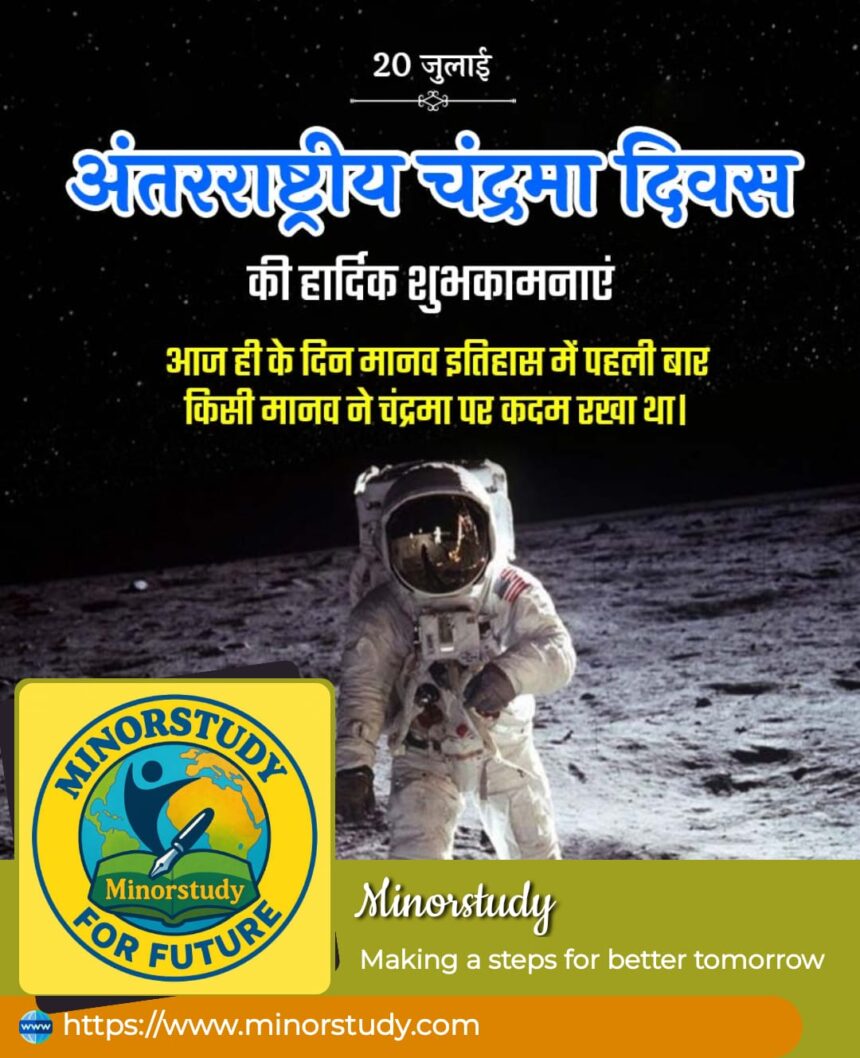🌕 9 Incredible Truths Behind International Moon Day – A Remarkably Positive Tribute to Human Curiosity and Cosmic Dreams
Every year on 20 July, people around the globe celebrate International Moon Day, an occasion that honors one of humanity’s most daring and profound accomplishments — the first human landing on the Moon in 1969. But this day isn’t just about history; it’s a celebration of human potential, scientific curiosity, unity, and our eternal fascination with the cosmos.
- 🕰️ History of International Moon Day
- 📌 9 Incredible Facts About the Moon & International Moon Day
- 📅 Timeline: International Moon Day & Key Lunar Events
- ❓ Frequently Asked Questions (FAQs)
- What is International Moon Day?
- Who celebrates it?
- Why is the Moon landing so important?
- How can we celebrate Moon Day?
- ✨ Significance of International Moon Day in Our Lives
- 1. A Symbol of Human Achievement
- 2. Promotes Global Unity
- 3. Ignites Curiosity in Young Minds
- 4. Peaceful Use of Outer Space
- 5. Sustainability and Future Colonization
- 🌌 Cultural and Spiritual Observance of the Moon
- 🎉 Wishes & Messages to Share on International Moon Day
- 🧠 Why the Moon Matters in Daily Life
- 🛰️ Important Points To Remember
- ✅ Conclusion: One Moon, One Humanity, One Hope
From the spiritual awe ancient cultures felt for the Moon to the high-tech missions of modern space agencies, International Moon Day connects us all under one celestial body — our Moon.
In this human-friendly, heartful exploration, we’ll cover the history, facts, timeline, FAQs, societal relevance, cultural observance, and deep significance of this extraordinary day — and why it should matter to each of us on Earth.
🕰️ History of International Moon Day
Celebrated On: 20 July every year
Commemorates: The Apollo 11 Moon landing on 20 July 1969
Declared By: United Nations General Assembly
Year of Declaration: 2021
First Observance: 2022
🌍 Why was it declared?
The UN General Assembly declared International Moon Day as part of the “International Cooperation in the Peaceful Uses of Outer Space” agenda, aiming to promote global awareness of space science and exploration, and to commemorate the shared achievement of all humankind — stepping onto another celestial body for the first time.
📌 9 Incredible Facts About the Moon & International Moon Day
🌑 The Moon was formed about 4.5 billion years ago, likely from a massive collision between Earth and another celestial body named Theia.
👨🚀 Neil Armstrong was the first human to walk on the Moon on 20 July 1969, followed by Buzz Aldrin.
🌘 Only 12 humans (all American men) have walked on the Moon – all between 1969 and 1972.
🌍 The Moon is the only celestial body ever visited by humans.
📡 Moon missions provided critical data for Earth weather, GPS, and satellite communication.
🧪 The Apollo program brought back 382 kilograms of Moon rocks.
🌝 The Moon influences Earth’s tides, agriculture cycles, and even biological rhythms.
🛰️ Over 100 spacecrafts have been sent to the Moon from various countries.
🌖 Countries like India (Chandrayaan), China (Chang’e), and Russia (Luna) are also leading recent Moon explorations.
📅 Timeline: International Moon Day & Key Lunar Events
| Year | Event |
|---|---|
| ~4.5 Billion BCE | Moon forms from Earth-Theia impact |
| 1961 | President John F. Kennedy announces goal to land on Moon |
| 20 July 1969 | Apollo 11 lands on Moon: Armstrong & Aldrin walk |
| 1972 | Last crewed Moon mission (Apollo 17) |
| 2021 | UN declares 20 July as International Moon Day |
| 2022 | First official global celebration of International Moon Day |
| 2023–2030 | Artemis program aims to return humans to the Moon, including first woman and first person of color |
❓ Frequently Asked Questions (FAQs)
What is International Moon Day?
It’s a UN-designated observance held on 20 July to commemorate the Apollo 11 Moon landing and to promote peaceful exploration of space.
Who celebrates it?
Countries, space agencies, educators, students, astronomers, and enthusiasts globally observe it with events, sky-watching, and science activities.
Why is the Moon landing so important?
It was humanity’s first step beyond Earth, proving that collective ambition, technology, and bravery can overcome incredible challenges.
How can we celebrate Moon Day?
By learning about space, watching documentaries, attending astronomy events, organizing educational workshops, or simply moon-gazing.
✨ Significance of International Moon Day in Our Lives
1. A Symbol of Human Achievement
The Moon landing was not just a U.S. success — it was a giant leap for mankind. It demonstrated the heights humanity can reach when united for a cause.
2. Promotes Global Unity
In an era of conflict, the Moon reminds us of a shared Earth. Astronauts often describe the Earth from space as one borderless, fragile blue orb.
3. Ignites Curiosity in Young Minds
Astronomy is often the gateway to STEM education. Moon Day is a powerful tool to inspire future scientists, engineers, and space explorers.
4. Peaceful Use of Outer Space
The day underlines the importance of cooperation in space exploration, avoiding militarization or exploitation.
5. Sustainability and Future Colonization
With private companies and nations racing toward the Moon again, discussions around sustainable space exploration become crucial.
🌌 Cultural and Spiritual Observance of the Moon
Long before telescopes and space missions, the Moon was revered in many cultures:
Hinduism: The Moon (Chandra) is a deity and a significant part of the lunar calendar and festivals.
Islam: Follows a lunar calendar; the Moon determines the beginning and end of months.
Buddhism: Full Moon days are sacred (Uposatha).
Native cultures: The Moon is seen as a spiritual guide and a symbol of fertility and intuition.
This spiritual connection enhances the emotional and philosophical value of celebrating International Moon Day.
🎉 Wishes & Messages to Share on International Moon Day
🌕 “May your dreams reach beyond the stars — Happy International Moon Day!”
🛸 “Here’s to science, imagination, and the Moon that unites us all!”
🚀 “On International Moon Day, let’s remember: No goal is too high if our vision is clear and united.”
🌌 “The Moon reminds us that even in darkness, we can reflect light. Happy Moon Day to all dreamers!”
🧠 Why the Moon Matters in Daily Life
🧭 Tides & Time
The Moon affects our tides, time cycles, and agricultural planning.
🧘♀️ Wellness
Moon cycles are linked to moods, hormonal changes, and spiritual practices.
🎨 Creativity
The Moon inspires art, poetry, storytelling, and human imagination across centuries.
👨👩👧👦 Family
A great opportunity to bond over stargazing, science documentaries, or moon-themed crafts with children.
🛰️ Important Points To Remember
🌙 The Moon is more than a celestial object — it’s a mirror of human aspiration.
📚 Moon Day is not only about history, but about future exploration and preservation.
🌐 It reminds us that Earth is one home, and our shared sky connects us all.
✅ Conclusion: One Moon, One Humanity, One Hope
On International Moon Day, we celebrate more than a footprint in the dust. We celebrate vision, courage, innovation, and the indomitable spirit of discovery. This day connects ancient wisdom with futuristic dreams, reminding us that curiosity is universal, and so is our place in the cosmos.
Whether you’re a space enthusiast or a casual observer of the night sky, this day is for you. It’s a call to keep looking up — because from the Moon’s surface, Earth is a world without borders.









Do you have a spam problem on this website;
I also am a blogger, and I was curious about your situation; we have creatd some niice pracyices and we are
looking to exchange methods with others, why not shoot me an email if interested.
my webpage … Granite Headstones
Hey! This is my first comment here so I just wanted to give a quick shout
out and tell you I truly enjoy reading your blog posts. Can you suggest
any other blogs/websites/forums that cover the same topics?
Many thanks!
You should take part in a contest for one of the best blogs on the web. I will recommend this site!